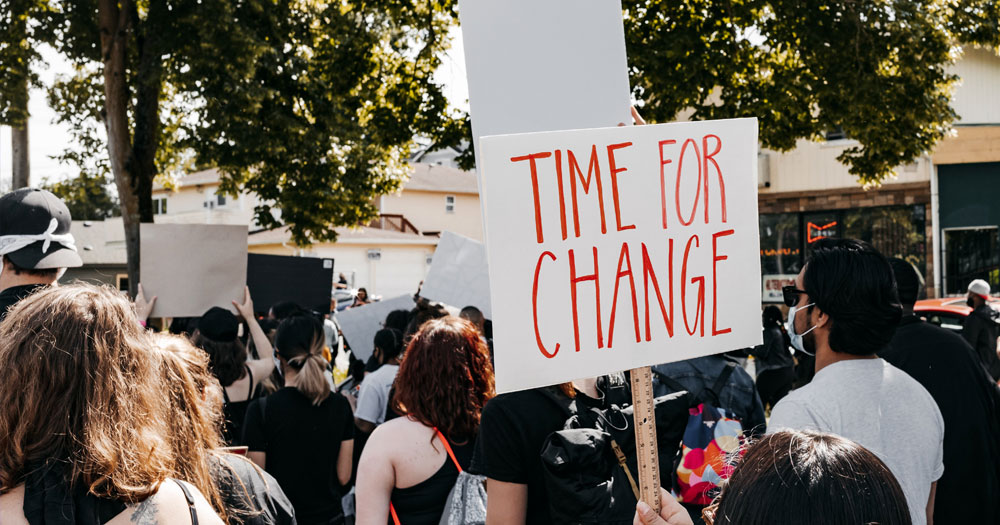Content Warning: Contains descriptions of transphobia.
Yesterday, October 26, BBC News reported a story on its digital platform, which alleged that some lesbians have been pressured into having sex with Trans women, and the article itself is peppered with anti-Trans rhetoric.
Written by Caroline Lowbridge, who disappeared off Twitter around the time of publication, the article is sparking fiery debate across the internet about whether or not it is transphobic to choose your sexual partners based on their genitalia.
That BBC article about trans people is disgusting, I won't share it as I don't want to promote it. But whoever commissioned it should be ashamed.
An article based on a social media poll by a group hostile to trans people with a headline that will drum up hatred is despicable.
— Nadine Batchelor-Hunt (@nadinebh_) October 26, 2021
While some Twitter-users are coming to the defence of the BBC writer, overwhelmingly the piece has been condemned for giving a platform to anti-Trans views. For example, in explaining why she would not want to date a Trans woman, the article quotes a woman who’s been given the name of Amy, referencing a hypothetical Trans woman as “male”.
“I can hear their male vocal cords. I can see their male jawline. I know, under their clothes, there is male genitalia. These are physical realities, that, as a woman who likes women, you can’t just ignore.”
Headline: "Lesbians pressured into sex with trans women!"
Evidence: a social media survey of just 80 people, only half of which actually agreed with, from a group condemned by Pride in London.
This is propaganda. pic.twitter.com/GbRzieoCqu
— Adam Smith (@adamndsmith) October 26, 2021
Adam Smith, The Independent’s Science and Tech reporter, labelled the article as “propaganda”, while Trans activists are circulating an open letter to the BBC to voice their outrage over the piece.
An open letter to the BBC regarding an article published on 26th October by Catherine Lowbridge – @TransActivismUKhttps://t.co/3YZFqLUkEH
— Laura Kate Dale – Mastodon "@[email protected]" (@LaurakBuzz) October 26, 2021
As pointed out by Gay Times, the writer “cites things such as social media, people’s opinions and even a survey of 80 people as sources during her apparent investigation”.
Lowbridge herself admits in the piece that there is “little research on this topic – only one survey to my knowledge” and that “the pressure comes from a minority of Trans women”.
This disclaimer, which occurs 360 words into the almost-4000-word thinly-researched collection of anecdotes, is not sufficient to give balance to this article. A headline that perpetuates Trans women as sexual predators (even with the qualifier of “some” Trans women) does a huge disservice to an already highly marginalised community.
Whatever your views, you should know that for this article published by the BBC yesterday, author Caroline Lowbridge used accounts of a group of lesbians known to have anti-trans views for the basis of her research. I’m fairly sure that’s not how proper research should happen. pic.twitter.com/SbFvh8YkQf
— Leanne Allen (@OhLeanneAllen) October 27, 2021
It must be said that some of the women in the BBC article share personal incidences of rape and sexual coercion and have clearly experienced trauma; that cannot be glossed over.
However, the trauma of these women should not be used as a weapon to defend the ill-intent of this article.
Online, those who have condemned the messaging of this article are being called out for invalidating the experiences of the women who shared their stories, while those who support the article are being called out as transphobic.
We as readers may have to open our minds to the possibility that two things can be true: these women may indeed have been victims, while also the BBC article is indeed anti-Trans rhetoric.
If you have been affected by this story or are looking to reach out to someone for support or advice or just to talk, there are numerous services available for LGBTQ+ people, listed below, and many offer instant messaging support.
- SpunOut.ie
- LGBT Helpline
- TENI
- Samaritans
- HIV Ireland
- Dublin Rape Crisis Centre
- Aware
- Pieta House
- Mental Health Ireland
© 2021 GCN (Gay Community News). All rights reserved.
Support GCN
GCN is a free, vital resource for Ireland’s LGBTQ+ community since 1988.
GCN is a trading name of National LGBT Federation CLG, a registered charity - Charity Number: 20034580.
GCN relies on the generous support of the community and allies to sustain the crucial work that we do. Producing GCN is costly, and, in an industry which has been hugely impacted by rising costs, we need your support to help sustain and grow this vital resource.
Supporting GCN for as little as €1.99 per month will help us continue our work as Ireland’s free, independent LGBTQ+ media.
